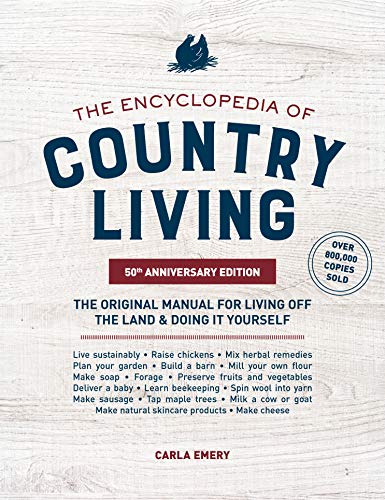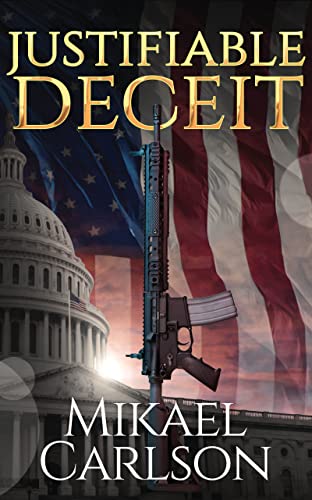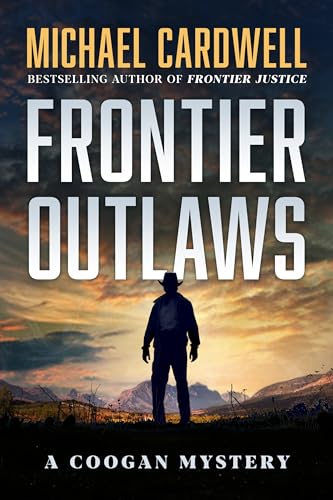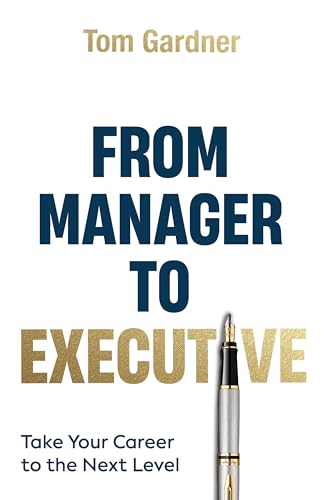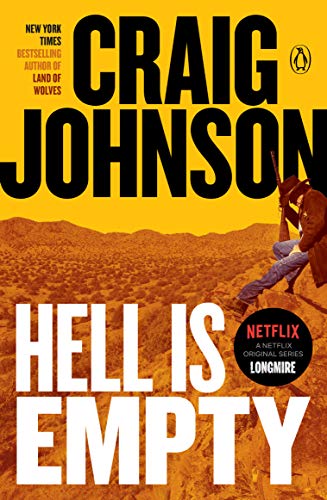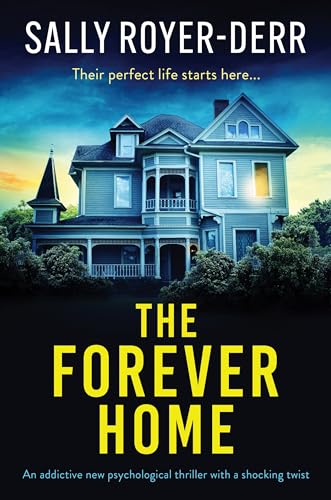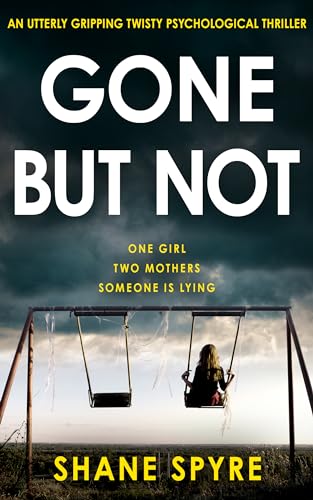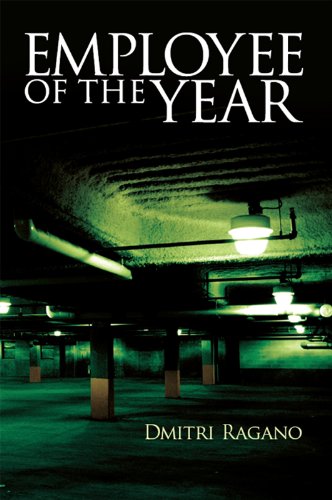Harold and Maude…”A grandmother with a deep sense of injustice goes on a Robin-Hood style crime spree with her ‘tween grandson in thispoignant and satirical novel that’s part crime thriller, part black comedy and part family drama.
Deep in the heart of California’s dysfunctional, strip-mall suburbs, the city of Santa Ramona, California is besieged by a pair of unlikely bandits.
Johnny Valentine is a lonely boy who dreams of becoming a hero, just like the masked avengers from the pages of his comic books. His feisty grandmother Stella is a retired supermarket clerk and cancer survivor with a fierce sense of justice. Running out of time, money and options, the old lady is driven by the need to make one last great contribution.
Together the boy and his grandma devise a Robin-Hood style scheme to rob a ruthless retail conglomerate, stealing cash and medicine for the sick and needy. As their crime spree continues, the citizens of Santa Ramona wonder how to judge the crazy young boy and his fugitive grandma.
Are Johnny and Stella Valentine a menace to society? Or are they the only ones trying to save it?
5-star praise for The Fugitive Grandma:
Breath of fresh air
“Dmitri Ragano does a deft job of writing a smart thriller combined with a family drama, while still taking on some tough topics...”
Insightful and humorous
“…Stella is a fascinating character….There is an old fashioned moral code within Stella’s heart that goes beyond fear, beyond hatred, and every now and then, it makes a ferocious appearance…”
an excerpt from
The Fugitive Grandma
by Dmitri Ragano
Chapter 1: Highway Robbery
The boy and his grandma had done it again.
Another round of robberies in the wee hours between midnight and dawn. Three separate trucks from the fleet of Great American Superstore. All making their weekly supply runs to pharmacies.
Detective Rebecca Little was assigned to the strange case of Stella and Johnny Valentine. The fugitive grandma and her eleven-year-old grandson were on a roll, with a string of successful heists that embarrassed local police as well as the company’s largest retail empire.
“You understand this thing?” one of the responding officers asked as Detective Little walked by wrecked police cars at the scene of the latest crime. “What makes a boy and his grandma go wacko like this?”
It’s not that hard to believe, the detective thought. Plenty of people out there are one bad break away from going wacko.
“None of you were hurt?” the detective asked the officer, who’d been involved in the failed police chase.
“We’re all fine,” he said, and then explained how the grandmother had leaned out the passenger side of the stolen truck with a shotgun and taken out a tire of the front patrol car.
Detective Little walked farther up the freeway ramp, stepping through broken glass and mangled metal. She met the truck driver who’d been the victim of the ambush, a pudgy young man with a mane of messy hair tucked into a baseball cap.
“I ain’t paid to be a hero,” the driver explained. He was eating a chocolate chip cookie out of a ziplock bag. “Someone puts a shotgun in my face, I hand over the keys. Don’t matter if it’s an old lady. At least she gave me some cookies.”
Detective Little jotted notes on a reporter’s pad. “Tell me about the cargo. You were carrying pharmaceuticals, right?”
“Pills, drugs, all kinds of medicine. You name it. Diabetes kits, beta blockers, antibiotics, anti-inflammatories, inhalers, painkillers. Hundred grand worth of merchandise, easy.”
“What about Helixin? Was there any Helixin in the cargo?”
The driver seemed puzzled. “That don’t sound familiar. Then again, there ain’t no way I can check every product on there. What is it, anyway?”
Rebecca ignored the driver’s question and made a note. Great American started out as a bargain grocer, but the megachain was now pushing hard to become the largest one-stop-shop for medicine in the country, able to fill any prescription, even exotic cancer therapies.
Rebecca figured that Great American must only send Helixin out on special request from the pharmacist, so it wouldn’t go into the routine weekly shipments. Helixin was a new type of biotech drug, recently approved and incredibly expensive. LifeGen, the pharmaceutical company that manufactured the medicine, had exclusive rights to the patent. The charge for each monthly injection was as much as the cost of a compact car.
Most insurers claimed there was no proof that Helixin was more effective than cheaper generic medicines, which gave them a reason to deny coverage.
The pudgy driver handed a crumpled manifest to Rebecca that confirmed the shipment contained no Helixin. The detective knew that meant Stella and Johnny would strike again. They would keep going until she got her stash of the miracle cure.
Rebecca waited until the driver finished the last cookie in the bag and then started in again, questioning the man impatiently.
“Is there anything else you saw? Did she say anything to you?”
The driver licked his lips and smiled.
“Before the truck pulled away, she called me over to the passenger side. She said: ‘Kid, someday you’ll understand why I am doing this. Someday you’ll be in a situation where the things that you depend on aren’t there anymore. And then you’ll have to fight.’ Then she handed me this bag of cookies. Like a consolation prize or something. And the truck was gone. That’s it. Don’t get me wrong. I am not happy they ripped off the truck. But maybe what she and the kid’s doing ain’t so bad after all.”
The detective turned away from the driver. The fumes from the wreckage still wafted over the freeway like Indian smoke signals in an old Western movie. She hit her speed dial, reaching the voice mail of real estate agent Frank Valentine.
“Your mother and son have done it again. I know you’re holding out on me. I know you can help, and the longer you wait, the worse this is going to come out. Someone’s going to catch them. You better hope that I am the one. If it’s anyone else, then you may lose your family for good.”
The detective took one last look in every direction. Somewhere beyond the freeway smog, Johnny and Stella were planning their next move. With every crime, their notoriety grew. Notoriety would bring a rush to judgment. How would the public judge the boy and his fugitive grandma if the truth were discovered? How would the public judge the police and the company that tried to hunt them down and silence them? The detective truly believed she was the only one who cared about justice. That’s why she had to catch Johnny and Stella before anyone else.
Chapter 2: The Birthday Party
Six Months Earlier
Later on, after he slipped off the map into the shadows, Johnny would remember the day when it all started to change.
It was his eleventh birthday.
It was the day he found the .357 Magnum revolver in his grandmother’s dresser.
That was the day he knew his dreams could come true.
“You’re living in your own little world,” Johnny’s father said, as they drove to the party at Grandma Stella’s house. “Your imagination is running wild based on your comic books.”
“I want to be a hero, Dad. That’s the only thing I want. Nothing you can say will change that.”
“There are no heroes in the real world, only winners and losers. One day you’ll have to decide. Are you going to be a winner, or a loser? What’s it going to be?”
If the world really was made up of winners and losers, it was hard to say where Johnny’s dad, Frank Valentine, belonged. His father was always jumping from one job to another, until his mother finally left. She had married the millionaire boss at her secretary job and moved across the country. In the divorce proceedings that followed, Johnny was asked to choose where he wanted to live. He remained in California with his father, close to his grandma, Stella Valentine.
“You’re eleven years old now,” Frank continued. “I lost my father when I was your age. I didn’t have time for fantasies.”
“Yeah, right, Dad. Whatever you say.”
After dropping off his son in the driveway, Frank backed out and sped away. He was off to meet an investor.
“You’re a big boy now, Johnny!” Grandma Stella announced, swinging open the screen door of her ranch-style house, and greeting him with a big hug. She was a sweet-faced, seventy-something-year-old lady with dyed blonde hair and the energy of a Mexican jumping bean.
She led him into the kitchen, where she was making homemade ravioli, Johnny’s favorite meal.
“Being a big boy means taking charge of your life. Look at me: I’m getting old, but I have my own place, I have friends that I love, and I do what I please.” She handed Johnny a rolling pin, wax paper, and a bowl full of dough.
“It’s good to be here,” Johnny said. “Good to be away from Dad.”
“Your father is a good guy, but he’s too worried about money,” Stella said, as she checked the chocolate cake that was baking in the oven. “Maybe he thinks if there was more money to go around, then there’d be more love. I love your father, but I’m going to give it to you straight. My son gets mixed up sometimes. He forgets the most important things.”
Johnny sprinkled flour across a sheet of wax paper and began flattening the dough for the ravioli with a rolling pin. Then he scooped the ricotta cheese into a mixing bowl and added parmesan, eggs, and chopped fresh parsley.
“So what do I do if my dad and I don’t see eye to eye?” Johnny lowered the ravioli into a pot of boiling water.
His grandmother shrugged and checked the flame under the pot.
“Like I said, you’re a big boy now. At the end of the day, you make your own decisions. Just remember, Johnny, it isn’t going to be a walk in the park. It’s a tough world. That means you have to be tough, too. Plenty of bullies out there.”
“I know about that,” he said.
Johnny felt a bruise on the back of his neck, the spot where the twin boys at school had smacked him from behind with a ruler. The brothers, Stan and Tim Maguire, were a year older than Johnny, but were in the same class at Santa Ramona Middle School.
“Bullies don’t go away when you get older,” Stella said. “They just get bigger and meaner. So you got to know how to stick up for yourself. Nobody gets a happy ending guaranteed. When the wolf comes to get you, you can’t count on some knight in shining armor. You better be ready to take the wolf out yourself.” Stella stirred a pot of tomato sauce simmering on the burner next to the ravioli. “It’s like you found out in the book report I helped you do for school last year.”
Johnny remembered the book report assignment. He had written about the Grimm Brothers’ fairy tales. It was the story of Little Red Riding Hood, the wolf, and the grandmother.
Johnny must’ve read the story a hundred times, and he had always thought he knew it. The girl walked through the woods to visit her grandma, but a wolf had eaten the old lady alive. The wolf ate the little girl, too, but then a hunter killed the wolf and rescued them both, pulling the girl and her grandma out of the wolf’s belly. That’s the way the story went. A happy ending.
That’s what Johnny had thought, until he did the book report.
While at the library doing his research for the book report, Johnny dug up another version of the story. In the second version, the wolf ate the girl and her grandmother, but no hunter came to save them. The girl and her grandmother died. The wolf got away with murder.
“You remember what you found out when you did the book report,” Stella said. “There was a happy ending, and there was a terrible ending.”
“I got in trouble for that book report. My teacher thought I made up the other ending.”
“Don’t worry about it, Johnny.” Stella waved her hand dismissively. She removed the chocolate cake from the oven and set it on the kitchen counter to cool. “Most of that stuff they teach you in school is baloney anyway. The wolf is out there, Johnny. And the story can go either way in real life. Maybe the wolf gets you or maybe he don’t. Maybe someone comes to the rescue or maybe they don’t. Maybe there’s a happy ending and maybe there ain’t.”
By the time the ravioli were ready, a group of friends was in the living room. Most of them knew Stella from her job as a grocery clerk. For twenty-five years, from the time Stella arrived in California until her retirement, she had worked at Caruso’s Supermarket on the corner of Magnolia and Santa Ramona Avenue in the center of town.
There was Stella’s best friend, a fellow retiree named Millie Szymanski, with the sz sound pronounced shhhh, “Like when you’re keeping a secret,” as she liked to remind everyone. The description stuck in Johnny’s memory because Millie was about the worst secret keeper he had ever met.
Next to her sat Elmer Dillinger, Caruso’s head pharmacist, a kindhearted widower with a wrinkly smile. He had worked at the store for decades, and was popular with customers for helping with all kinds of health advice beyond simply filling prescriptions.
Elmer was the closest thing that Johnny had to a grandfather. When he wasn’t working, Elmer liked to take Johnny on fishing trips at a campground in the San Jacinto Mountains. They caught black bass and bluegill at a secret lakeside spot that Johnny had christened Hideaway Cove.
The last guests to arrive were the Santana family: Vince, his wife, Marla, and their twelve-year-old daughter, Sabrina. Vince was the butcher at Caruso’s, where he ran the fresh meat and fish section. In recent years, Vince was joined at work by his nephew, Marco, an eighteen-year-old college wrestling star who wanted to be a doctor and had joined the pharmacy staff as one of Elmer’s assistants.
Sabrina was the only kid at the party. She was the same age as Johnny and they had known each other their whole lives, playing as children at Stella’s parties and card games.
As they got older, they seemed to be going in different directions. Sabrina was pretty and confident. She was a straight-A student and a star player on the school soccer team.
Johnny, on the other hand, wasn’t really good at anything in school.
Yet Sabrina was always friendly to him, and she never seemed to forget the closeness they shared as younger kids. It surprised him that Sabrina still cared about him enough to come to his birthday party.
“This is from my whole family.” Sabrina handed him his present, the latest edition of his favorite comic book, Captain Justice. It was the adventures of a criminal judge who developed a caped alter ego to catch and punish villains who slipped through the system. In his mind, Johnny was modeling his own future ambitions around Captain Justice. He was going to be a real-world superhero. He wouldn’t settle for anything less.
“This is perfect.” Johnny flipped through the pages of Captain Justice and felt a tingling sensation of delight. “Thank you so much, Sabrina. How did you know what to get me?”
“I still know what you like, Johnny.” She smiled. “Remember when we were little? You never would stop talking about superheroes. One time, we put on capes made from bedsheets and were ready to jump off the roof of my family’s apartment. I can’t believe I let you talk me into that.” They both laughed at the memory of the incident. “You always did have a great imagination.”
“I’m surprised you came today. I didn’t think you would.”
“Of course,” she said with a confused look. “You didn’t want me to come?”
“No, no. That’s not what I meant at all.” Johnny’s face flushed with embarrassment. “I’m really happy you’re here. I just wasn’t sure you would be.”
“I’m not going to forget about you, Johnny. I have a soccer game tomorrow after school. It would mean a lot to me if you could make it.”
“Yeah, of course I will. Thanks for inviting me.”
After dinner, Stella brought out the cake decorated with eleven burning candles and they all sang, urging Johnny to make a wish. He looked down at Captain Justice and knew what he wanted to happen.
Following the cake, Stella put a Tony Bennett CD in the stereo and they cleared the dining table for a game of penny poker. Johnny went into his grandmother’s bedroom as he had a hundred times, to retrieve the jar of pennies and two packs of Hoyle playing cards.
Johnny knew the pennies and cards were stored in the top drawer, but this time, either out of curiosity, absentmindedness, or some other instinct he didn’t fully understand, he opened the bottom drawer of the dresser. That’s where he found the shiny, loaded Smith and Wesson revolver and the bullet box.
He was still frozen with wonder, when Stella found him by the bed cradling the gun carefully in his hands. It was a dreamlike rush, a call to the life of adventure and greatness, the life he had just wished for moments earlier in front of the birthday candles.
“What are you doing?” she said. Stella snatched the gun away, confirming the chamber was empty. “Don’t tell your father about this.”
Johnny was startled. He had never even heard her enter the room.
Stella grabbed the handle and aimed the barrel at an imaginary target with the confidence of a pro.
“You have to be careful. You don’t know how to use a gun…yet.”
“Why do you have it, Grandma?”
“Why do you think I have it? It’s just like that story with the girl, the grandmother, and the wolf. The wolf comes after all of us, Johnny. When my time comes, maybe there’s someone there to save me and maybe I am on my own. So I got to prepare. You better believe that when the wolf comes for me, he’s going to get one heck of a fight.”
Chapter 3: The Family
Grandma Stella placed the gun back in the bottom drawer and they returned to the dining room. Their friends were waiting to start the poker game. Explaining why it took so long to retrieve the cards and pennies, Stella mumbled something about needing Johnny to move a piece of furniture, and no one gave it a second thought.
They played several hands of Texas hold ’em until everyone around the table had a chance to deal. The game was a favorite, since it was quick to play and you could keep it short or continue for hours, depending on the mood and the situation. Johnny brought out a plate of chocolate chip cookies that Stella had baked the day before, her famous special recipe with oats, brown sugar, and dark chocolate morsels.
“Stella, don’t let me touch those cookies,” Millie urged. “I have to watch my blood sugar.”
Stella nodded. Millie was a diabetic who had a hard time resisting sweets, especially when she was caught up in the action of a poker game. They’d all played cards together long enough to know that if Millie reached for a cookie it was a surefire sign that she was bluffing.
Stella, on the other hand, was a master poker player who kept her emotions in check and expertly hid her intentions. She never tried to flaunt her skill among friends, but they all knew her talent, and Johnny had seen her in action a few times over the years during family vacations in Las Vegas.
“You have to be aggressive, Johnny,” his grandmother advised. “You can’t sit there and be passive. If you do that, the other players will take control and get the upper hand. Just try to read the other players. Everybody has a tell. The tell shows you what they’re really thinking, not what they want you to believe.”
Johnny still couldn’t get his mind off the gun in the dresser. Remembering Stella’s poker tips, he wondered if her words carried a double meaning. Maybe the daring his grandma displayed in card games was quietly applied to other, hidden parts of her life where the stakes were higher.
He knew a little about his grandmother’s past. She grew up in some old steel town back in Pennsylvania that Johnny had never visited. Her husband ran the neighborhood pizza parlor and was shot dead in a robbery one snowy Friday night as he was closing out his cash register. Johnny’s father, Frank, was just a boy when the tragedy occurred.
As a young widow, Stella moved her son across the country to start a life in California. There she met Millie, who helped her get a job at the supermarket, and she saved enough money to buy the house on Mariposa Street.
Johnny always knew his grandmother had a tough streak, but the discovery of the gun proved that it ran deeper than he had ever guessed. The characters in his comic books also had two sides to their personalities. Bruce Wayne and Clark Kent could lead ordinary lives and transform into superheroes when necessary. Johnny couldn’t help but wonder whether his grandmother had bit of superhero inside her as well.
“Millie, dear, that’s a tell!” Stella yelled. “Put down that cookie. We know you’re bluffing.” She laughed as her friend froze, with a fresh cookie in one hand as she pushed twenty pennies into the pot on a pair of face cards.
“Ah! You got me,” Millie realized. She blushed and dropped the cookie, raising both hands in the air like a thief who’d been caught. Turning over the hidden cards, she showed there was nothing underneath to help her face cards. Sometimes it seemed like Millie just got one bad hand after another.
It was getting late, so they wrapped up the game and the guests began to leave one by one.
Stella went into the kitchen while Johnny and Millie cleared the table. On the television, the Channel Nine anchorwoman, Brenda Sugarland, reported the latest local business story.
“Great American Superstore, the largest retail chain in the country, could be coming to Santa Ramona County. Confidential sources report that the firm is negotiating to purchase Caruso’s Supermarket, a local grocery that has served Santa Ramona for over forty years. Caruso’s sales are down since the death of its founder, Ernie Caruso, ten years ago.”
“That’s a doggone shame what’s happening,” Millie said to Johnny, her eyes glued to the television set. “Caruso’s was a great place to work back in the day. Mr. Caruso treated us all like family. That was true loyalty.”
“I need to ask you about something,” Johnny said to Millie. Stella was still cleaning up in the kitchen and he knew she wouldn’t be able to hear them. “You’ve known my grandmother a long time. You know all her secrets.”
“That’s for sure. She’s like a sister to me.”
Johnny voice was low, almost a whisper, barely audible once the mechanical rumblings of the dishwasher started in the next room. “I found something in her dresser.”
“Is this about the gun?” Millie blurted out, before quickly covering her mouth. Once again she was foiled by the same honest instincts that ended so many poker hands.
“I found it by accident,” Johnny said. “Grandma came in and saw me holding it. That’s why it took so long for me to get the cards and the pennies for poker.”
“Well, I know she keeps it back there.” Millie’s voice was hushed now also. “She’s serious about protecting herself. But don’t tell your father. She doesn’t want Frank to know she still has it. He made her promise to get rid of it.”
“Don’t worry, I’m not going to tell him anything.”
“He’s worried. Thinks she’s too old. I don’t think he needs to be concerned, though. I doubt she’ll need to use it again.”
“Again? What do you mean, again?”
“Oops. Maybe I shouldn’t have said that.”
“So she has used it?”
“Yeah, she has, but—”
“Tell me what you know.”
Millie sighed, wearing the same red-faced expression as she did the time she was caught bluffing with a cookie in her hand.
“Don’t go blabbing about this, OK?” Millie continued soberly, as if she was an expert on keeping secrets.
“I promise, Millie, I won’t spill the beans.”
“Like I said, we worked in the same supermarket for years. There was a time back twenty years ago when the neighborhood around Magnolia Street got a little rougher. You had these shady characters riding on motorcycles and all strung out on drugs. One day, Stella and I were working the checkout counter and these three bikers in leather jackets pulled up in front of the store. First, they were just snooping around inside, but suddenly they slipped on ski masks and drew these long hunting knives out of their jackets. One of them, the leader, grabbed Mr. Caruso out of the manager’s station and stuck the blade in his face. I remember the guy’s jacket sleeves were ripped off and there was a big skull tattoo across his bicep.
“Then the second biker ran straight toward me and jumped over the counter. He pressed his knife against my neck. There were two other checkout aisles open. One was run by Stella and the other by our friend, Silvia Torrez, who was just a young girl back then. I was so scared I thought I’d have a heart attack right there on the spot.
“But I looked over at Stella and I could see she wasn’t scared at all. She was just getting really mad. And that’s when I learned this about your grandmother: once she gets mad enough, then she can’t be intimidated. I am sure she has fears like the rest of us, but once the anger inside her gets bigger than the fear, then it’s a different story. Whatever the fear might have been able to live with, the anger wasn’t having any of it.
“So out of the blue, Stella pulls out her revolver from a drawer under the cash register. It was the same .357 Magnum she still has now. And the next thing I hear is gunshots exploding and echoing around like the store just got hit by a thunderbolt. The first shot was fired as a warning at the third biker, who was coming at her. I could tell she didn’t mean to hit the guy, but it was close enough to scare the daylights out of him. He dove into a rack of People magazines with one of Liz Taylor’s weddings on the cover.
“Next thing I remember, she points her gun at the guy whose knife is at my throat. He was so terrified he dropped the knife and ran right out of the store. Then she stepped out from behind the checkout counter, and I could see the anger still burning bright in her eyes. She took aim at the leader, who was still holding Mr. Caruso with the knife near the manager’s station. She was angling for a way to get a clear shot at the guy without harming Mr. Caruso. What she did was fired it right in front of the leader’s face, since the guy was a lot taller than Mr. Caruso. She obviously didn’t mean to hit him, but she fired close enough to prove a point. The leader fell backward, away from Mr. Caruso, landing in a display case full of pretzels bags. Then Stella fired a fourth round at the ceiling right above this guy and a fluorescent light came crashing down on him. I could see some shards of glass cut the guy and he had blood running from his tattoo.
“Stella lowered her gun and started shouting: ‘Get out of our store! Get out of our store right now!’ The bikers all scrambled onto their bikes, the leader clutching his arm right where the tattoo was all bloody and open. You could hear the engines roaring and the tires screeching as they raced out of the parking lot. And as they drove away, Stella walked behind them on the sidewalk, gun ready, making sure they didn’t get any ideas about coming back.
“Well, we were all so relieved. We felt like she had saved the store. Mr. Caruso was forever grateful to Stella after that. He even offered to give her a cash reward, but she refused it. She said she did it because we were all family and we had to look out for each other.”
Chapter 4: The Passing Lane
When Frank finished his business deal, he returned to Grandma Stella’s house to take his son home once the birthday party was over. The father and son lived together in a two-story condo, part of a new gated community in the western side of Santa Ramona.
Frank and Johnny shared the same Italian-American looks, inherited from ancestors and a land they knew nothing about. But their personalities gave their appearance different effects. Frank’s handsome face conveyed a slick congeniality, while Johnny’s younger version of the same face suggested a shy vulnerability.
On the ride home, Johnny stared out the window.
“Look, I know you’re mad I didn’t come to the party,” Frank said.
Johnny didn’t say a word.
Monday morning, the day after his birthday, Frank and Johnny were back in the car again. It was only four exits on the Route 91 Freeway from the condo to Santa Ramona Middle School. Not a great distance, but Frank was determinedly weaving between different lanes.
“You always got to keep your eye out for a passing lane, Johnny. Never lose a chance to get ahead. The freeway’s always going to be crowded, so you got to look for an opening and take it. Otherwise, you just get stuck and everything will pass you by.”
After he dropped his son off at school, Frank picked up his mother, Stella, to drive her to a recurring doctor’s appointment.
Frank always had his eye on the passing lane.
Ever since he was a child, Frank had yearned for something better. After the loss of his father, his modest upbringing on his mother’s salary as a grocery clerk provided love and the essentials, but in his mind there was always something lacking. He knew there was a bigger, more exciting life out there, and he was missing out on it.
As an adult, Frank chased success through the many incarnations of his business career, as restaurant entrepreneur, car dealer, insurance salesman, and stockbroker. None of these endeavors had brought riches or satisfaction.
When Johnny’s mother left him to marry her wealthy boss, Frank made some reckless real estate investments in another failed attempt to hit the big time.
“You never should’ve bought all those homes, Frank,” Stella lamented, as they got back on the freeway and headed toward the medical center.
“Relax, Mom. It’s going to all work out.”
Frank knew if he’d listened to his mother earlier, he wouldn’t be in his current jam. He certainly wasn’t about to admit that to her.
“I don’t see why you have to aim for so much, Frank. I never made the big bucks working at a supermarket. But I have a home. I have my son, my grandson, and my friends. Isn’t that enough?”
Frank shook his head. No, he thought, that isn’t enough. Once again, something she would never understand.
“Mom, you’ve always had your opinions. I know you like to tell me how to live my life, but there’s one thing you’ve got to remember. You had your time. Now it’s my time.”
“My time isn’t over,” Stella fired back. “I have experience, instincts, and advice that you need to hear.”
“It’s a different world now, Mom. The old rules don’t apply.”
Chapter 5: The Miracle Cure
Frank and Stella arrived at the plush offices of Dr. Malcolm Whittier in the City Medical Center, where she’d been treated during her recovery from cancer.
After her initial diagnosis three years ago, Stella’s life was a blur of dizzy spells, surgical procedures, and exhausting sessions under scorching lasers. Everything failed to fight the disease until finally, in the second year, Dr. Whittier put her into a clinical trial for a wondrous new drug called Helixin.
Since she went on the medication, Stella was in complete remission, but she still got visibly nervous every time she entered the oncologist’s office.
“Mom, don’t worry. You’re fine,” her son said. Frank’s voice was full of comfort and compassion; the bickering tone from their conversation on his real estate business was gone. “You beat this thing. The only reason that Whittier insists on these monthly checkups is so he can get the extra fee for the Helixin injections. He makes a few thousand bucks a pop for every shot.”
Frank laughed cynically and pointed to the extravagant furniture and artwork that filled Dr. Whittier’s office. He profited immensely as one of the first doctors to document the breakthrough benefits of Helixin, using Stella’s recovery as a case study for seminars and medical papers. The drug’s manufacturer, LifeGen, paid him speaker fees and provided free bulk samples of Helixin, which he resold to patients.
Stella knew the doctor grew very rich through her experience as a patient, and she didn’t care. The only thing that mattered was that she got into the Helixin trial when there was no other hope. Now, because of the medicine, she was healthy.
Frank and Stella sat side by side, each of them thumbing through their third round of magazines from the coffee table, when a beautiful blonde woman in a Chanel suit entered the office. She handed a bouquet of flowers to the receptionist. Frank and Stella recognized the woman, Julie, who seemed to drop in every time they had an appointment. She glowed with the enthusiasm of a cheerleader at a homecoming game.
Julie was a “detail lady” for LifeGen. Her job was to sell new drugs to doctors, showering them with gifts and perks along the way. Julie explained the proper care for the flowers to the receptionist, and then asked to see the doctor, to tell him about a vaccine coming to market.
“We’ve got an appointment with Dr. Whittier, right now,” Frank interrupted.
Julie’s head spun toward Frank and Stella abruptly, startled by the intrusion. Then she smoothed out her face with an effervescent smile.
From the hallway leading to the examination rooms, Malcolm Whittier strolled into the lobby. He was a dapper man in his early forties and looked like he could be a decade younger. Whittier grinned when he saw Julie, a hint of mischief in his eyes. Then he directed his attention to his patient.
“My nurse, Sarah, is going to give you the checkup and the injection,” the doctor told Stella, setting his hand on her shoulder.
“What do you mean, Doc? How come you’re not going to see me? Don’t you need to check for any new signs? What if—”
The doctor gave Stella a reassuring smile. “Mrs. Valentine, I’ve told you this before. You don’t have to worry. You’re healthy. The Helixin attacks the cells so that cancer can’t grow. It cripples the oncogene. There is no way for the disease to start to spread itself again. You’ll stay in complete remission as long as you continue with your treatment. You don’t need me to administer the medicine. Sarah is quite capable.”
Whittier then exited the office, together with Julie. Stella could hear their voices trailing down the corridor as they discussed the best new restaurant for lunch.
Sarah brought Stella into one of the examination rooms, where she changed into a gown so the nurse could do a routine check for any new signs.
The nurse prepared for the monthly injection, opening a cabinet above the room’s sink. Stacked inside were several boxes marked Helixin in large letters, with the label of Promotional Samples in smaller print underneath.
As the nurse removed a vial from the box and filled a syringe with its clear liquid contents, Stella clutched something she carried during every checkup. It was a Saint Jude prayer card, which Millie had given Stella during her darkest hour, when her condition appeared to be terminal. As the needle pricked her skin, Stella silently recited the words on the card to distract herself from the sting.
Dear Apostle and Martyr for Christ, with good reason many invoke you when illness is at a desperate stage. We now recommend to your kindness for someone in a critical condition. May the cure of this patient increase their faith and love for the Lord of Life, for the glory of our merciful God. Amen.
Stella remembered praying to the patron saint of lost causes when she was very sick, when it seemed so certain that the illness would take her life.
She pleaded to the angels and anyone else who would listen. As a younger woman, she pounded the pavement, making her pitch to various employers for a chance to work, until she finally landed her grocery job at Caruso’s. This time around she was pitching her case to God for the chance to keep on living.
Of course, I have my selfish reasons, she thought to herself, during those silent, bleak hours in the pews. Nobody loves life the way I do. Nobody enjoys the simple pleasures of friends, family, and retirement the way that I do.
But it’s not just about me. It’s about Johnny. Someone needs to be there to give the kid some guidance. His parents are off chasing pots of gold at the end of the rainbow. Without me here, there’s no one to teach him what life is about.
There was another reason stirring within her, something vague, but powerful nonetheless.
There’s something else that I am supposed to do…some contribution I can make…not just for me and Johnny, but for many others.
Later, after setting the prayer card with her name on the altar, Stella’s fortunes suddenly and miraculously changed once Whittier got her into the Helixin trial. The dark and painful moments in the pew, so close to death, faded like the memory of a nightmare.
Stella felt the final jolt of the needle being withdrawn and opened her eyes to the harsh fluorescent light of the examination room. The nurse smiled.
“Everything’s fine. See you next month, Mrs. Valentine.”
As Stella changed back into her street clothes, she couldn’t shake the lingering recollection of her pitch to God to keep on living, the pledge to make some contribution. Was this the fleeting delusion of a sick woman? Or was it real? And if so, what could it be?
Chapter 6: Durable Power
After the appointment, Frank took his mother to Marie Callender’s, a family restaurant in the same strip mall as Caruso’s Supermarket. They had coffee and apple pie, a treat that had become a tradition for them, a way of celebrating every successful trip to the doctor’s office. Eating forkfuls of pie and stirring nonfat milk into their coffee, they laughed and gossiped about what kind of lunchtime activities Dr. Whittier and Julie might engage in.
“I think there’s something going on between those two,” Frank snickered.
“I think you’re right,” Stella replied. “He’s turning into a ladies’ man. Did you see the silk shirt and designer tie he was wearing today? He used to come in looking like a nerd in the old days, now he could pass for some Hollywood big shot. The doc’s got a good thing going, and he’s milking it.”
“That guy pisses me off. The way he passed you off to the nurse. Who does he think he is?”
Stella waved her hand dismissively. “I let it slide. Whittier may be a little highfalutin nowadays, but I got to give the kid credit. He hooked me into Helixin. He got me in the trial. Since then, it’s seems like everything’s been smooth sailing.”
“That’s what I’ve been telling you, Mom. You don’t have to worry. All that stuff you went through is over.”
“I have to pinch myself to make sure I am not dreaming. My old boss, Mr. Caruso, used to always tell me that the greatest wealth is health. Boy, was he ever right about that.”
Frank grinned and gobbled a bite of his pie.
“You know, Frank, I keep remembering something from when I was real sick. I had this feeling like maybe there’s some kind of mission that’s still ahead of me, some contribution I have to make.” Stella shook her head. “Life’s funny that way. Sometimes you don’t know whether you’re at the end of the book or you’re just kicking off a whole new chapter.”
“Mom, you have plenty of chapters left. You’ve got sequels. And then some.”
She laughed. “I wasn’t sure for a while, but I’m starting to think the same thing myself. That’s actually what I wanted to talk to you about.” She paused and her manner turned more serious. “Frank, since my health is back. I think that I’m ready to be in charge again. We don’t need that contract.”
Frank’s grin disappeared and his lips twisted with unpleasant shock, like he just bit into a piece of dill pickle in the middle of the pie filling. For a moment, it seemed he might have choked on his pie, until he swallowed and recovered. His mother was referring to a power of attorney contract they drafted during the worst stage of her illness. The agreement granted Frank decision-making authority over all of Stella’s financial assets and health-care decisions.
Frank cleared his throat. “Are you sure that’s a good idea, Mom? You wanted that thing in place to make it easy to take care of you if anything happened.”
“That’s true, but like you said, I don’t have to worry now. Everything is back to normal. Besides, I’ve been reading up on this, and we can set up the contract so that it’s springing.”
“Springing?”
“Right now it is set up for durable power of attorney, which makes you the decision maker at all times. If we change it to a springing agreement, I stay in charge now while I am healthy. Then, if anything happens, the contract goes into effect and puts you in charge of everything.”
“We spent a lot of time drafting that agreement. I don’t see why we have to go back and pay a lawyer to change it.”
“Frank, as long as I’m healthy, don’t you want me to be in charge of my own life?”
“Of course I do.” Frank rested his hand on his mother’s shoulder. He realized his reaction was too strong and would make her that much more determined. “I know how much you value your independence. I don’t want to see you lose that, ever.”
Frank didn’t talk during the drive back to Mariposa Street. He was trying to untangle a trap in his mind. If it came to a struggle, his mother couldn’t challenge the contract. She’d need his consent. He had read in the paper about many cases of seniors who granted durable power to their guardians. It was like giving away the key to your life. You could never get it back unless you got agreement from the keeper of the key.
Frank anticipated the hard choice he would need to make. A terrible debt was coming due, one of his own making. The wolf he faced would not hesitate to devour him. He would need all the money and assets he could muster to feed the beast and spare his own life. He remembered their earlier argument, on their way to the doctor’s office. Was it his time or her time? Did it really have to be one or the other? A man should never have to choose between his own survival and his mother’s. He would have to find a way to save them both.
Chapter 7: Tuscan Paradise
After dropping off Stella at her house, Frank drove back down the 91 Freeway toward the foothills in Corona. He took an exit to a surface road lined with eucalyptus trees, arriving at a gate with Greco-Roman pillars. An engraved title over the entrance read Tuscan Paradise. Frank keyed in an access code and the gates slid open to a private road that snaked up a foothill toward the ridge.
At the summit, the road overlooked a construction area for a vast planned community, with sites for scores of condos, homes, and mansions. Frank descended into the basin, where the slopes were carved into layered tiers of separate residential lanes that ended in cul-de-sacs. Only several blocks of homes were complete and showed signs of habitation.
The remainder of the slopes and the basin were lined with wooden skeletons and frames, some of them partially fleshed out with insulation, drywall, and stucco. At the center of the basin was a giant pit of dirt and cement, once intended as the foundation for a community clubhouse and auditorium at the heart of the doomed community.
Frank once envisioned future phases with hope and optimism, watching the workmen and equipment sprinkled throughout the basin. Now the men were gone and all construction was suspended.
There was a time when Tuscan Paradise was touted as the hottest real estate attraction in the county, a new standard in luxurious residential living that would put Santa Ramona on par with the most exquisite master-planned communities in San Diego, Los Angeles, and Orange County.
Frank couldn’t resist the promise of Tuscan Paradise. When the banks wouldn’t loan him any more money, he searched for a private investor who could back him up. That was how Frank came to know Lester Cummings, a secretive man with vast, hidden wealth. Lester agreed to front one million dollars, as a part-loan, part-equity investment, for the purchase of multiple homes in the first phase.
Now it was obvious to everyone that Frank’s bet on Tuscan Paradise had gone horribly wrong. Lester was not a man who you’d want to disappoint. Frank understood that better than anybody.
As the afternoon sun baked the basin, Frank turned onto Tivoli Lane and noticed a few cheerful Sold signs with the photo of Bobby Maguire, a rival realtor with a strong reputation in the city. Maguire was the father of the twin brothers in Johnny’s middle school class, two boys who bullied Johnny and were known for having the upper hand in the classroom.
Unfortunately for Frank, the twins’ father had the upper hand as well in the world of real estate. Whether it was merely bad luck or inferior salesmanship, Frank’s timing was off, and he couldn’t unload his own houses before the market soured.
So while Maguire’s face beamed with the satisfaction of someone who sold before it was too late, Frank was stuck with For Sale signs in the yards of the four homes that he and Lester owned in the cul-de-sac at the end of Tivoli Lane. Every time he came by Tuscan Paradise, his own signs seemed a little more worn, and his own smile in the listing photo seemed a little more desperate.
As he parked his SUV in front of one of his empty two-story, McMansion properties, Frank observed a black Mercedes in the driveway. He noticed the three large men sitting inside, watching in the shadows. One of the men emerged from the driver’s seat and marched forcefully toward Frank. He was middle-aged, with salt-and-pepper hair. As he approached, he seemed to gain momentum. His face was red and blotchy, full of anger and violence, hardened by a life of greedy conquests that brought no satisfaction. This was Frank’s business partner, Lester Cummings.
Lester was a tank of a man, a mass of fat and muscle, and propelled his enormous body with energy and precision. Clad in jeans, a leather jacket, and a black sweater, he hurtled toward Frank as if he might tackle him. His thick neck, crooked nose, and square jaw gave his face a triangular menace, like an alligator ready to snap its jaws on helpless prey. The two other men in the Mercedes stepped out and followed behind Lester, hands buried in their bulky coat pockets. Frank knew they were Lester’s cronies.
The first man strutting behind Lester was Harry Gibraltar. He was lanky, with oily black hair and sideburns worn long like Elvis in his later Las Vegas days. Harry had a sour face, with pockmarked cheeks and lips in a persistent scowl. Frank knew Harry was involved in the day-to-day oversight of Frank’s legitimate businesses that served as a front for his cash flow.
Frank had assumed from the outset that Lester needed a safe place to park his cash. When they drafted the deal to buy the homes in Tuscan Paradise, Lester insisted on keeping his name off public transactions, funneling the money to Frank through a series of off-the-book maneuvers that cloaked his involvement. And so Frank formed a corporation in his own name. This seemed strange to Frank at the time, but it also seemed to work to his advantage, so he didn’t question it.
The second figure emerging from the Mercedes was Rudy Spinoza, a thin man of average proportions that gave him an everyman quality. Rudy was a chameleon whose appearance changed a little each time Frank met him. Frank could never figure out exactly what role Rudy played within the organization, which was not a good sign. He could tell that Rudy’s various faces were masks for a man who could be very dangerous.
As the three looming figures closed in on him, Frank shuddered and regretted once more how badly he’d underestimated the risks of taking on Lester as a partner. At the time, all he could see was the money that Lester was willing to provide. Now, Frank saw Lester and his henchmen for what they really were: thugs hiding behind the façade of legitimacy. Frank was mired in a swamp and there was no easy way to avoid the jaws of the alligator.
“I still see For Sale signs on this block. Why are these signs still here, Frank?” Lester growled. He kept charging forward until his body was on the brink of contact with Frank. When he stopped, he clenched his fists and kept his arms ready, like he might throw a punch any second.
“I still have plenty of leads, Lester,” Frank answered weakly. “I have appointments all afternoon to show the homes.”
“You’ve been showing these houses to people forever. You have no excuse. You need to make the sale.”
“You’ve got to give me a little more time, Lester.”
Lester shook his head. “Your job is to sell. That’s what you told me. You told me you were the best guy around. I gave you one million dollars because you told me you could turn these homes for a thirty percent return. So that’s what I expect you to do,” Lester continued.
“I’ll get you your return,” Frank said. “Just a little more time.”
Lester poked his finger into Frank’s chest.
“My patience is running thin. I didn’t get where I am by giving guys like you the benefit of the doubt. You came to me because you couldn’t get a loan from the bank. I invested. The flip side to that is that I play by different rules than the bank. I am not gonna write off a loss quite so easily. If you don’t pay up, I guarantee you’ll lose a lot more than your credit rating.”
Lester shoved Frank so hard that he fell backward, knocking over his own sign and landing in the grass. Frank started to push himself up and saw Lester move one step closer.
“When I first started dealing with you, Frank, you convinced me you were a winner. Come on, man. Convince me again. Show me you’re a winner,” Lester challenged.
Frank sat up on the grass. He expected more abuse, but instead, the big man turned around and got into his car. Frank waited until the Mercedes disappeared over the ridge and then brushed himself off, checking the time as he did. In half an hour, another prospective buyer would arrive at Tivoli Lane for a house showing. Frank had to forget what just happened and get ready to sell.
Chapter 8: The Unincorporated Zone
Lester Cummings ran his affairs from an office behind a neon-lit bar. The bar was one of several properties he owned in a grimy strip mall on the outskirts of Santa Ramona. The mall was in an unincorporated zone, a slice of land between municipal borders that didn’t fall into any specific city.
When he bought the property, Lester was attracted to the idea that no local city police were directly responsible for the area. Like other unincorporated zones, jurisdiction would be left to the overstretched county sheriff’s department. In Lester’s mind, this meant minimal supervision and maximum freedom to conduct his affairs without interference.
Lester and his two sidekicks, Rudy and Harry, returned in the Mercedes after meeting with their real estate partner, Frank Valentine, exiting the 91 Freeway in an industrial area and weaving through a patchwork of warehouses, junkyards, and storage facilities until they reached their home base. On their way, they passed a retirement home called Shady Palms, another business Lester controlled through a shadow company.
Lester was a predator by nature. He started young as a common gangster, committing petty theft and armed robberies. Then he spent the majority of his adult life trying to slowly edge his illicit dealings toward legitimacy. He wasn’t motivated to do this out of guilt, remorse, or any aspiration to lead a virtuous life. He figured that going straight offered bigger payoffs with less risk. It was that simple. And in his mind, that was the only thing that separated the straight business world from criminal enterprise. Still, Lester was never afraid to get his hands dirty if that’s what it took. He had come up the hard way, and was prepared to do anything he had to in order to keep moving in the direction of wealth, power, and comfort.
As a teen, he formed a gang with Rudy and Harry, committing holdups throughout the county. After serving time, Lester got out and looked for opportunities in the margins and gray areas, anywhere that he could leverage his skills as a thug and a thief, as long as he could stay out of trouble.
Lester’s first fortune was through the rise of Indian gaming, when casinos were sprouting up on reservations across the county. Lester provided security for the tribes and then branched out into loan sharking, book keeping, and embezzling cash collected at the card tables on the casino floors. The tribes grew suspicious and Lester knew it was time to move on. He used his windfall from Indian gambling to buy the strip mall in the unincorporated zone. Most of his cash flow now came from a ring of bingo games he ran out of Shady Palms and other retirement homes in Santa Ramona.
In the office, Harry Gibraltar lit a cigarette, huddli
A great read for just $1.99 on Kindle, just in time for Election Day … with no axe to grind! Dmitri Ragano’s The Voting Machine: A Temo McCarthy Mystery: It’s election season in Las Vegas and someone is murdering voters….
The Voting Machine:

Temo realizes that he alone holds the key to finding a ruthless and brilliant killer who is determined to sabotage the vote and provoke a national crisis.
Kindle Nation Daily Mystery Readers Alert! Dmitri Ragano’s Exciting And Entertaining EMPLOYEE OF THE YEAR – Now Just 99 Cents on Kindle!
“Employee of the Year” is a mystery novel set in a credit card call center in Los Angeles.
Temo McCarthy is a young phone agent in the Passion Financial collections department. He spends his days “dialing deadbeats”, convincing broke, desperate credit card customers to pay their overdue balances.
Temo wants to win the Employee of the Year award, a $100,000 prize that goes to the top agent in the call center. This will give Temo a solid foundation for life with his new wife Suzy and their baby on the way, a foundation he never had growing up in a broken home.
The only thing that stands between Temo and the Employee of the Year award is his rival, a clever colleague named Roland Shavosian. Roland is nicknamed “The Voice” in the call center for his uncanny ability to persuade customers to pay their bills.
The week before Passion’s CEO is set to announce the Employee of the Year, Temo finds Roland murdered in the company parking lot.
As police proceed with their investigation, Temo realizes he must find the killer in order to prove his own innocence. If Temo is able to solve the mystery, he could still win Employee of the Year. Otherwise, he may lose everything.
Dmitri Ragano is a creative, unconventional author who knows how to tell a story that other people aren’t telling. He takes the hooks of the mystery/thriller genre and fills it in with ambitious themes and compelling original characters. Prepare to be intrigued and entertained!– Seth Harwood, Author of “Jack Wakes Up”, 5 StarsYou won’t put it down once you’ve started.
If you have ever questioned who is on the other end of the line at a call center and what compels them to go to work each day, you need no longer wonder. Employee of the Year is filled with interesting, well developed characters with personal depth – some are just trying to make it by doing the best they can, others are competing for the prize, all need to uncover the truth. As the plot twists and turns you are rooting for Temo the whole way through.– Karrie Hovey, Amazon Reviewer, 5 Stars

